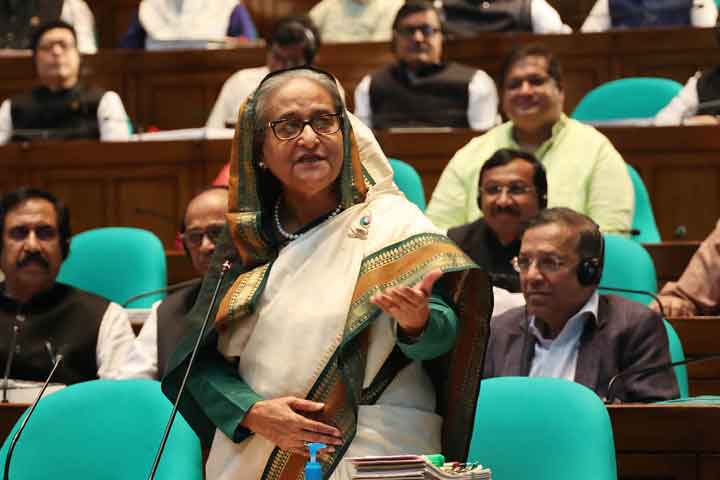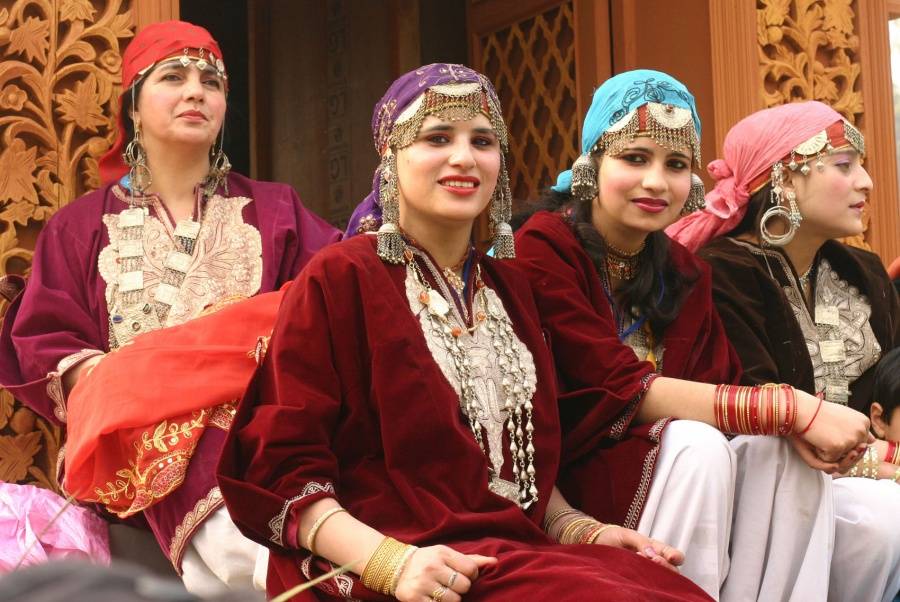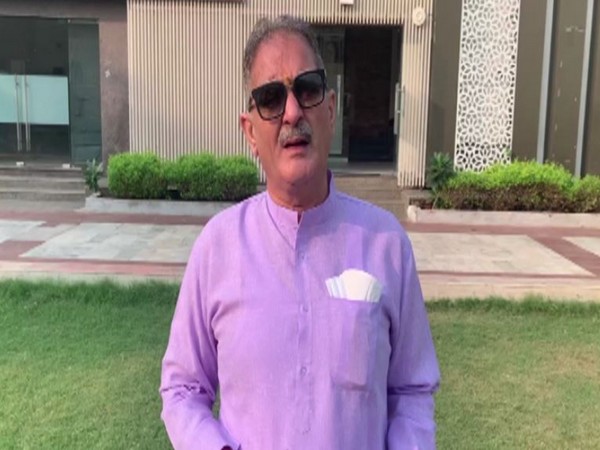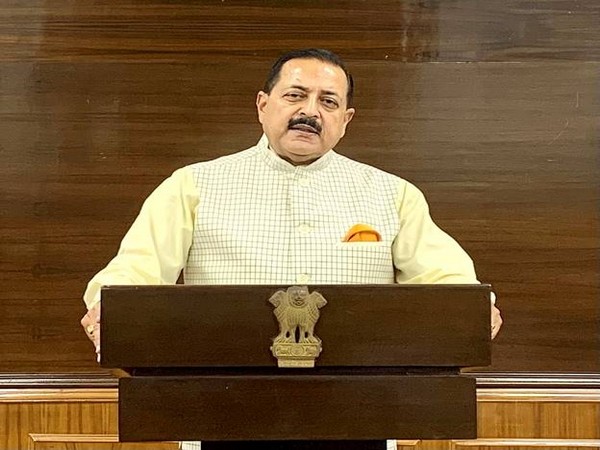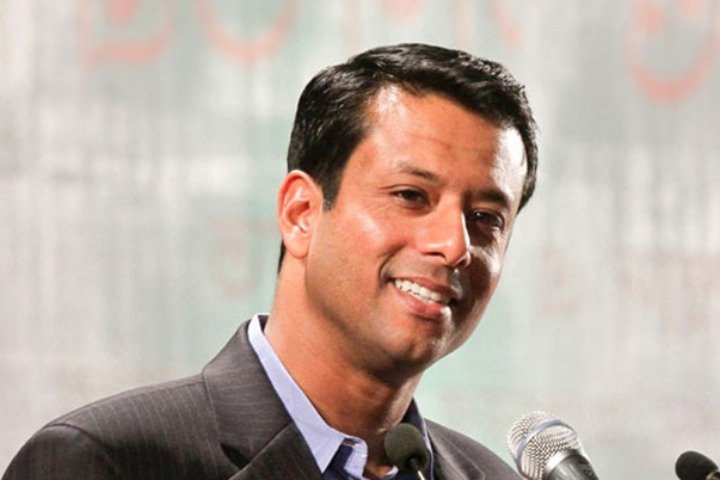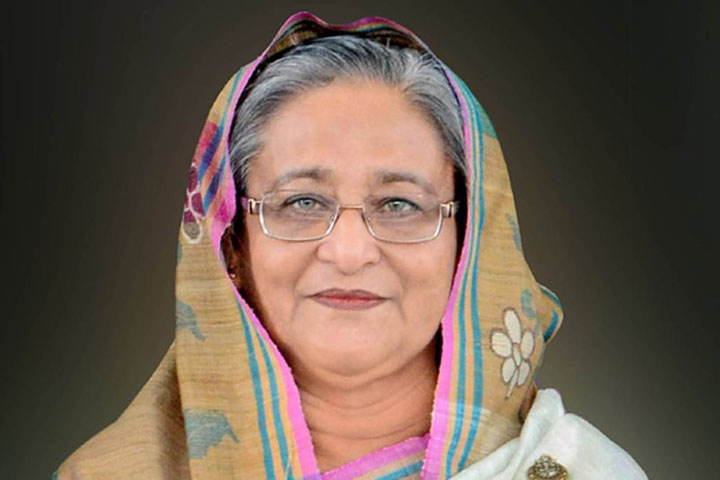J&K's tourism blooms after abrogation of Article 370: Report
Though some parts of Jammu and Kashmir are struggling economically, the region overall is seeing a tourism revival after Article 370 was abrogated in 2019 by the central government under Prime Minister Narendra Modi's leadership.
Kashmir, the centre of tensions between India and Pakistan, is seeing a boom in tourism.
India aimed to spotlight Kashmir's stability, at a conference on tourism held under the auspices of the Group of 20 major economies, which India chaired this year on May 22-24.
The art and play industry is also booming back in Jammu and Kashmir after 370 was removed.
Ladishah, a storytelling musical genre of Jammu and Kashmir, was slowly and steadily dying. But a few youngsters are reinventing the old musical storytelling technique to preserve Kashmir's age-old fading culture.
Since the tourism industry is booming rapidly, the Administrative Council (AC) chaired by Jammu and Kashmir Lieutenant Governor Manoj Sinha last week gave approval to the absorption of 145 Employees of Hotel Corporation of India Limited (HCIL) working at Centaur Lake View Hotel, Srinagar, into different corporations under the Tourism Department.
The decision was taken on the recommendations of the committee that the Union Territory of J-K will absorb the existing staff of the Hotel Corporation of India Limited on the existing terms and conditions.
New Delhi grabbed this opportunity and showed through the event with delegates from more than two dozen countries, that life was returning to normal in the region after years of conflict.
At the famous Dal Lake, the delegates were seen enjoying colourful boat rides in Shikaras. "Ended the day with a scenic shikara ride on the Dal Lake followed by a cultural performance and delicious wazwan dinner! Thank you@g20org@JandKTourism@srinagaradmin@tourismgoi for the impeccable arrangements!" tweeted Singapore in India.
The mega G20 tourism meet in Srinagar has clearly caught the attention of international media, with many of them highlighting India's efforts of showcasing the restoration of stability and normalcy in Kashmir.
In a resounding display of cultural opulence and artistic finesse, the G20 delegates at the Sher-e-Kashmir International Convention Centre (SKICC) found themselves captivated by the exquisite handicrafts of Kashmir. The third Tourism Working Group meeting witnessed a vibrant gathering of craftsmen and vendors, as they showcased their masterpieces to an international audience.
From the plush Pashmina shawls that enveloped visitors in luxurious warmth to the hand-woven carpets that told stories through intricate patterns, the tapestry of Kashmir's artisanal brilliance was on full display. Delicate hand-embroidered fabrics, exquisitely carved walnut wood masterpieces, ancient Kangris (fire pots), and vibrant papier-mache art added further depth to the exhibition.
The Jammu and Kashmir government set up a special food stall Jammu Kashmir Rural Livelihood Mission (JKRLM) Millet Hub" for foreign delegates at Sher-i-Kashmir International Conference Centre (SKICC) in Srinagar during G20 meetings.
Jammu Kashmir was once a place where schools remained closed for extended periods, but now even girls are visiting schools without any fear from the extremist militants.
District Development Commissioner Doda, Vishesh Mahajan along with Senior Superintendent of Police, Abdul Qayoom on Tuesday inaugurated the All India Women Cricket Championship here in Sports Stadium Doda.
The tournament is being organised by the Department of Physical Education and Sports, Government Degree College Doda in collaboration with Sports & Fitness Hub, Doda.
Around 8 teams including teams from Uttar Pradesh, Hyderabad, GDC Doda, and GMC Doda are participating in the tournament.
Prime Minister Narendra Modi's face appeared on billboards showing India's role in the G-20, with slogans like "Srinagar: the city beautiful," Wall Street Journal reported.
Local business owners also agree that they have seen an economic revival.
Tangmarg and Gulmarg, two picturesque health resorts in north Kashmir's Baramullah District have undergone a remarkable transformation by implementing a beautification plan by the Urban Local Bodies (ULB) Kashmir.
Expenditure of Rs 1.64 crore on the beautification project aimed at repairing, redeveloping, restoring municipal assets, and enhancing the overall appeal of these towns.
on May 30, the plan was approved by the ULB Kashmir while the works were completed by the Municipal Committee Tangmarg, Gulmarg.
Jawed Bakhar, 43 years old, said tourists have flocked back to his souvenir shop, which sells the area's famed cashmere pashmina shawls.
"The tourism business is good," he said.
During the G20 event, Singapore's High Commissioner to India Simon Wong has praised the beauty of Kashmir and said that he is "very happy" to be in Srinagar.
Taking to his official Twitter handle, Simon Wong said, "Very happy to be in Srinagar. Pure beauty. Thank u so much for your warm welcome. HC Wong."
New Delhi said that its 2019 move to revoke the partially autonomous status of Jammu and Kashmir would help stabilize the area's economy, protecting it from militant separatist groups and allowing the region to draw in more investment and migration. The move proved its correctness when the G20 event was completed peacefully without any potential terrorist activity.
Jitendra Singh, a government minister and parliament member from the area, said at the G20 event that Kashmiris are ready to seize economic opportunities after years of terrorism.
"The common man has moved on," he said at a news conference, adding, "He can see the enormous opportunities unfolded by Modi across the country, and he does not wish to miss the bus."
Some countries protested India's decision to host the event in Kashmir. Pakistan, who isn't even a member of the G20, condemned the move, and expansionist China, which has territorial disputes with India, boycotted the meeting.
Indian officials at the event described an economic renewal bolstered by an influx of more than 18 million tourists to Jammu and Kashmir last year, up from 7.7 million in 2008. Indian officials have said the overall economy, which is heavily agrarian, grew by an estimated 8 per cent in the past fiscal year.
But some sectors like manufacturing have struggled in a region that suffers from frequent power outages and lack of connectivity with the rest of India. This is also because of geographical and climatic conditions.
Railway connectivity was an area, in which J-K was lagging behind for years, but under Prime Minister Narendra Modi-led Bharatiya Janata Party government at the Centre, thumping progress has been made towards connecting the region with the rest of the country.
In July 2014, after inaugurating the 25-km Udhampur-Katra railway line in July 2014, Prime Minister Narendra Modi assured the people that Kashmir would be connected and integrated with the rest of the country during his tenure.
While the unemployment rate has fallen from a peak of more than 30 per cent last year to 23.1 per cent in March this year, the fall was India's third highest, behind the states of Haryana and Rajasthan, according to the Centre for Monitoring Indian Economy, Wall Street Journal reported.
The G20 summit in Srinagar is a step towards projecting Jammu and Kashmir as international film shooting destinations.
The three-day Tourism Working Group Meeting of G20 delegates in Srinagar on May 22, 2023, commenced with the side event on "Film Tourism for Economic and Cultural Preservation."
Participants deliberated upon the importance of film tourism and its impact on the economy and culture. They unanimously agreed upon the fact that J-K is the best place to shoot the films.
With the G20 Tourism Working Group (TWG) meeting being held in Srinagar, North Kashmir's Bandipora district is leveraging the opportunity to promote its famous products to foreign delegates attending the summit.
These products include black cumin (kala jeera) from Gurez Valley, organic rajma (kidney beans) from Tulail Valley and exquisite paper mache art pieces from the Sumbal subdivision. These offerings highlight the district's diverse and rich products.
Jammu and Kashmir haven't held assembly elections since 2014. But elections are expected later this year after New Delhi implemented new rules that allow more residents to vote, Wall Street Journal reported.
The tourism rebound has been a tremendous help for the locals that had to keep their businesses closed when the militancy was at its peak.
Sameer Ahmed, a 34-year-old manager of a store selling Kashmiri cashmere, said that earlier political instability had forced the shop to close for an average of six months each year during the past seven years. Covid lockdowns also hurt.
Ahmed said sales have bounced back to pre-Covid levels after India lifted pandemic restrictions, triggering a surge in tourist arrivals.
"It's like they broke out of jail," he said of the visitors.
Nadeem Mulla, a 29-year-old travel agent from Gujarat, was on holiday in Kashmir along with 37 members of his extended family. He said they had admired the lush pine trees and clear lakes, and that the entire trip was costing him thousands of dollars, Wall Street Journal reported.
"I'm spending like crazy," he said.
Many hotel operators and souvenir shop owners say they are cautiously optimistic, but they are still bracing for possible future turmoil.
Anees Noor's family houseboat, outfitted with thick Kashmiri rugs and carved wooden furniture, was booked out almost every single day during last year's summer season.
Demand was so high that he tripled the rate to 10,000 rupees, equivalent to USD 120, a night, Wall Street Journal reported.
"There was not a single empty room," he said.
Still, the 23-year-old said his family is stocking up on rice and cooking oil in case tensions boil over again.
Jammu and Kashmir Lieutenant Governor Manoj Sinha on Monday inaugurated the Jambu Zoo at Nagrota and said that the new addition to the tourist destinations of J-K will attract both local residents and tourists visiting the Union Territory.
"Spread over the 70-hectare area, the new addition to the tourist destinations of J-K UT attracts both local residents and tourists visiting Union Territory," LG Sinha said. The recent G20 meeting in Jammu and Kashmir has given foreign dignitaries and observers a good opportunity to witness a change in the Union Territory since the abrogation of Article 370, Federico Giuliani wrote in Inside Over, an Italian-based news website.
The three-day G20 meetings in Srinagar were concluded last week where various foreign dignitaries came and took a tour of the city.
03 Jun 2023,11:46
















 Live Tv
Live Tv


